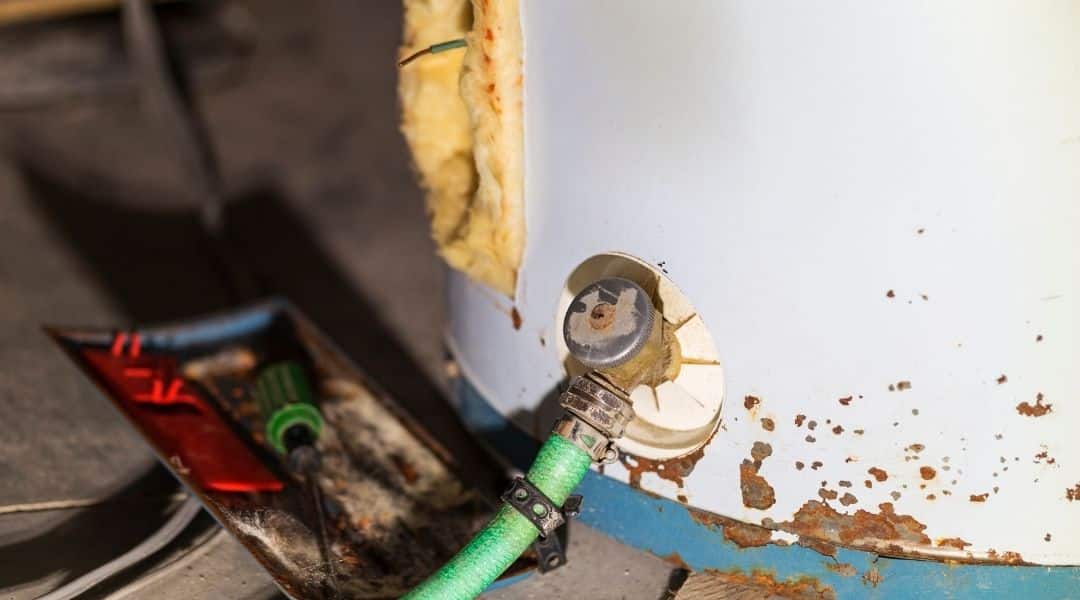Wondering how old is too old for a water heater? Many homeowners face this question as they navigate the upkeep of their homes.
Recognizing when your water heater needs replacement can save you from unwanted cold showers and high energy bills. This discussion covers signs indicating it’s time for a new unit, the life expectancy of various models, tips to extend your device’s lifespan, and knowing when to call in Mesa professionals for an expert opinion. After all, delaying could lead to serious consequences like corrosion.
Signs Your Water Heater Needs Replacement
If your mornings are marred by cold showers or you’re constantly adjusting the hot water dial, heed this advice. A failing water heater often starts by delivering lukewarm water before plummeting into an icy cascade. This subtle shift signals a potentially serious problem within.
Corrosion and rust not only compromise the integrity of your tank but may leave you with discolored, metallic-smelling water. A clear cry for help from your unit. Moreover, quick fixes become frequent guests at your home, reflecting both inconvenience and expense.
It’s time to consider replacement over repair. Remember that traditional units whisper their farewell around the decade mark while their tankless comrades bid adieu near two decades of service. For those facing such dilemmas, Mr. Sunshine Plumbing offers a reliable solution, ensuring warmth returns to every faucet embrace without delay.
Life Expectancy of Water Heaters
You might not have thought your water heater could last as long as fifty years, but it’s possible. Larry Weingarten, a top expert in hot water systems, shares this insight in his latest book. Generally, tank-type heaters run for about nine to twelve years before they give out.
However, you can extend their life significantly with some care on your part. Specifically focusing on the anode rod and sediment buildup. First off, that anode rod is crucial because it protects the tank from corrosion by attracting corrosive particles itself.
If left unchecked, though, these rods degrade over time and lose effectiveness; thus, regular checks are essential. In addition, draining the tank periodically removes sediment that accumulates at the bottom, which can also shorten its lifespan if ignored, by following just these two steps diligently.
A straightforward yet often overlooked maintenance. You’re setting up your investment to potentially reach or exceed five decades of reliable service.
Maximizing Your Water Heater’s Life Span
To boost your water heater’s life, start by scheduling regular check-ups. This includes flushing the tank to clear out sediment and inspecting for any leaks or signs of wear. Given that hard water can speed up corrosion, consider installing a softener to keep minerals from building up inside the tank.
Also, adjusting the thermostat to a moderate setting can prevent overworking its components and save energy. Another tip is insulating both your pipes and the heater itself; this keeps heat in, meaning less work for your unit and longer life expectancy. If you ever notice issues like rust or efficiency drops, don’t wait.
Get a professional plumber on it right away to avoid bigger problems down the road. As heaters age past their prime—typically 8-12 years—think about upgrading before constant repairs become an issue. A modern, efficient model not only avoids breakdowns but also cuts down on operating costs.



